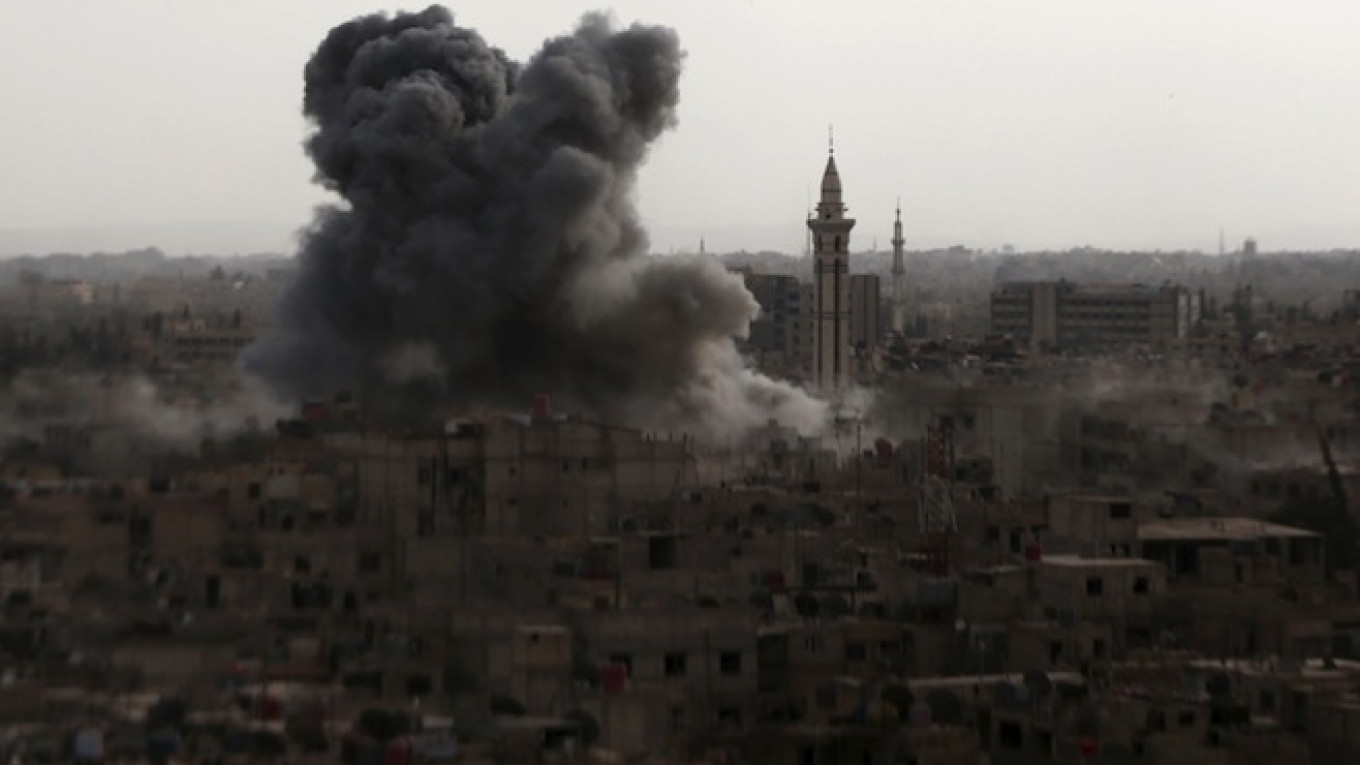Russia said Wednesday it opposes a draft United Nations resolution on Syria's use of barrel bombs which is being promoted by France, Britain and Spain because it could jeopardize upcoming international talks on how to restore peace to the conflict-wracked country.
Britain's UN Ambassador Matthew Rycroft said the draft has been circulated to some members of the Security Council and will be circulated to all members "in the coming days."
"I think it's important to ensure that indiscriminate bombing is stopped because it kills so many people, it terrorizes so many people and it's one of the causes of the flood of refugees and migrants out of Syria," he said.
Russia's deputy UN Ambassador Petr Iliichev told reporters he hasn't seen the draft. But he said it shouldn't be circulated to the Security Council now because "especially at this very delicate moment we should not jeopardize the efforts that are being undertaken in Vienna."
The talks in Vienna on Thursday and Friday are the most serious attempt yet to end the Syrian conflict, now in its fifth year, which has killed 250,000 people, displaced more than 10 million and created a massive humanitarian crisis.
France's UN Ambassador Francois Delattre said last week that barrel bombs are not defensive weapons, "they are weapons of terror."
A February 2014 resolution adopted by the Security Council demands that all parties in Syria stop using barrel bombs. But it was not under Chapter seven of the UN Charter which is militarily enforceable — as the proposed European draft resolution is.
Diplomats, speaking on condition of anonymity because the draft has not been made public, said it would ban the use of barrel bombs and threaten sanctions against those responsible for dropping the explosive devices that have killed thousands of civilians.
A Message from The Moscow Times:
Dear readers,
We are facing unprecedented challenges. Russia's Prosecutor General's Office has designated The Moscow Times as an "undesirable" organization, criminalizing our work and putting our staff at risk of prosecution. This follows our earlier unjust labeling as a "foreign agent."
These actions are direct attempts to silence independent journalism in Russia. The authorities claim our work "discredits the decisions of the Russian leadership." We see things differently: we strive to provide accurate, unbiased reporting on Russia.
We, the journalists of The Moscow Times, refuse to be silenced. But to continue our work, we need your help.
Your support, no matter how small, makes a world of difference. If you can, please support us monthly starting from just $2. It's quick to set up, and every contribution makes a significant impact.
By supporting The Moscow Times, you're defending open, independent journalism in the face of repression. Thank you for standing with us.
Remind me later.


